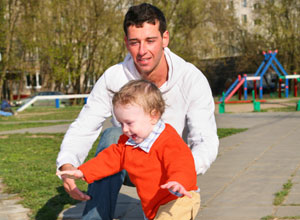View ACF COVID-19 Responses and Resources
View ACF COVID-19 Responses and Resources
- U.S. Department of Health & Human Services
- Administration for Children & Families
-
Family and Youth Services Bureau (FYSB)
By Office
- Administration for Native Americans (ANA)
- Administration on Children, Youth and Families (ACYF)
- Children's Bureau (CB)
- Early Childhood Development (ECD)
- Family and Youth Services Bureau (FYSB)
- Office of Child Care (OCC)
- Office of Child Support Enforcement (OCSE)
- Office of Community Services (OCS)
- Office of Family Assistance (OFA)
- Office of Head Start (OHS)
- Office of Human Services Emergency Preparedness and Response (OHSEPR)
- Office of Legislative Affairs and Budget (OLAB)
- Office of Planning, Research & Evaluation (OPRE)
- Office of Refugee Resettlement (ORR)
- Office on Trafficking in Persons (OTIP)
- Public Assistance Reporting Information System (PARIS)
You are here
Maternity Group Homes Fact Sheet
Audience:
Types:
Tags:
 Issue History
Issue History
The Runaway and Homeless Youth Act, passed in 1974, authorized the Transitional Living Program (TLP), which enabled community-based organizations to operate short-term, emergency shelters to provide crisis care to runaway and homeless youth (RHY) not already receiving services from the child welfare or juvenile justice systems. Congress created the Transitional Living Program for Older Homeless Youth as amendments in 1988. Today, the Family and Youth Services Bureau (FYSB) funds the Maternity Group Home Program as part of the Transitional Living Program, under the provisions of the Reconnecting Homeless Youth Act of 2008 (Public Law 110-378).
Program History
FYSB-funded Maternity Group Homes promote long-term, economic independence for homeless parenting youth and ensure the well-being of their children. The Maternity Group Home Program (MGH) supports community-based, adult-supervised, transitional living arrangements for homeless pregnant or parenting young people between the ages of 16 and under 22, as well as their dependent children. Services are provided for up to 21 months or until a young person turns 18 years old if they enter a program at age 16. MGH grantees are required to teach young people parenting skills as well as child development, family budgeting, health and nutrition, and other skills.
Services
Maternity Group Home grantees are required to offer the following services, either directly or by referral:
Extended Residential Shelter
- Group homes
- Maternity group homes
- Host family homes
- Supervised apartments
Transitional living plan
- Help moving from supervised participation to independent living or another appropriate living arrangement
Basic Life Skills Resources and Counseling Services
- Money management, budgeting, consumer education, use of credit
- Parenting skills
- Interpersonal skill-building
- Educational advancement
- Job attainment skills
- Individual or group counseling and parent/child counseling
- Referral to social and health care services,
- Leisure activities, aftercare, and, as appropriate, child care, and child nutrition
Service Coordination Plan
- Referral to social services, law enforcement, educational services, vocational training, legal services, health care programs, and affordable child care or child education programs
Outreach Plans
FYSB requires grantees to incorporate elements of Positive Youth Development (PYD) and trauma-informed care (TIC), which suggest that the best way to prevent risk and trauma is to help young people achieve their full potential. Youth development strategies focus on leadership, trauma counseling, skill-building, and community involvement.
Grant Award Process
FYSB funds the Maternity Group Home Program under the provisions of the Runaway and Homeless Youth Act of 1974 (Public Law 93-415), most recently reauthorized by the Juvenile Justice Reform Act of 2018 (Public Law No: 115-385). As of FY2020, FYSB funds 18 Maternity Group Home programs for up to a total of $4 million.
FYSB solicits applications for the Maternity Group Home Program by posting funding announcements on Grants.gov and on the funding page in the National Clearinghouse on Homeless Youth and Families. Applications are competitively reviewed and successful applicants receive three-year grants.
Contact Us
National Clearinghouse on Homeless Youth and Families
4340 East-West Highway, Suite 1100, Bethesda, MD 20814
Telephone: (833) GET-RHYi (833-438-7494)
Fax: (301) 828-1506
Download
- MGH Fact Sheet, September 2020.pdf (256.65 KB)
Directly Related Resources
2012 Transitional Living and Maternity Group Home Program Grant Awards
September 27, 2012
Other Resources on this Topic
Transitional Living Program Fact Sheet
September 30, 2020Runaway and Homeless Youth Program Fact Sheet
May 11, 2018FYSB FY2019 Runaway and Homeless Youth Maternity Group Homes Grantees
October 2, 2019Bought and Sold: Recognizing and Assisting Youth Victims of Domestic Sex Trafficking
February 10, 2017New Rule Strengthens Runaway and Homeless Youth Programs to Better Serve Youth Experiencing Homelessness
December 20, 2016

